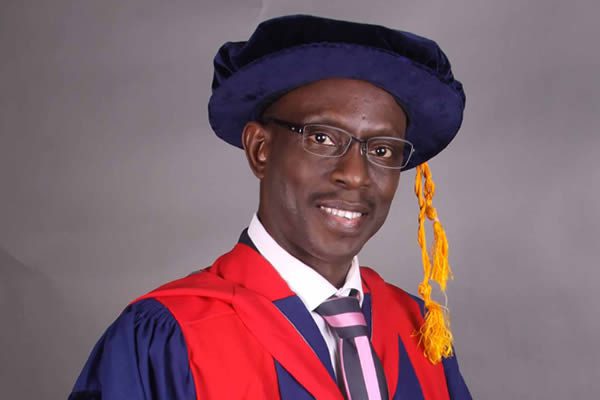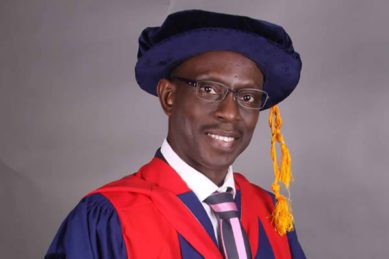Educational Issues
Fagbohun and the Challenge of Repositioning LASU -By Chidi Oguamanam


LASU VC, Prof. Olanrewaju Adigun Fagbohun
Nigeria’s tertiary education industry is increasingly competitive for all stakeholders. We have transitioned from the so-called first; second, third and, some would even suggest, to fourth generation universities. Except for professional bodies, both the federal and state governments have, until more than a decade ago, been the only major proprietary stakeholders in tertiary education. But with regulatory liberalisation in the education sector, several actors in the religious, secular and various local and international partnerships or consortia have entered the tertiary education sector with visible impact. Parents and guardians have unprecedented options for university education within Nigeria for their children and wards: Federal, state, and private.
Despite the concurrent increase in the number of private and federal universities, Nigeria remains underserved. Nigerian parents continue to send their children abroad, even to sister African countries for university and other forms of tertiary education, and at a huge cost too. (According to a Vanguard newspaper report on Wednesday, the Chairman Senate Committee on Tertiary Institution and Tertiary Education Trust Fund, Senator Binta Masi, yesterday said Nigeria currently spends over $2bn annually as capital flight on education abroad.) The troubled labour relations environment in Nigerian universities that pitched academics and students against military dictatorships of the 1980s did not abate with the advent of democratic governance 17 years ago. Not a few parents, even those who are really struggling, trace the reason they prefer sending their children to universities outside the country to interminable labour crises, student restiveness, not to mention ethical deficits and infrastructural challenges that characterise university education in Nigeria. It is not suggested that studying abroad is not desirable. But robust confidence in local universities is critical for national cohesion and development as well as for the economic and cultural life of the country.
Because of their prohibitive cost, not in spite of it, the popularity of private universities in Nigeria has made them enclaves for the children of the elites. Despite the complicity of Nigerian elites and power brokers in undermining public institutions, they still have ways of shielding themselves from its consequences, a case of having their cake and eating it. It will be an interesting research to identify the percentage of Nigerian political elites whose children/wards are either studying abroad or are in private universities in the country vis a vis those that are in public funded federal or state universities.
Yet, given their mandate, public universities are crucial pillars of accessible university education especially in a developing country like Nigeria. It is time to stem the tide in the selective attractiveness or unattractiveness of public universities in the country. This is where recent developments at the Lagos State University warrant attention. Many observers of the country’s tertiary education industry know that LASU is one of the pioneering symbols of Nigeria’s sub-national experiment with university education in the second republic. Through its history, LASU and other pedigree institutions have been able to fulfil their mandate then which was essentially to extend university education to education-hungry state indigenes who were not adequately accommodated by the retrogressive admission policies of federal universities. Over the years, LASU has grown, developing robust programmes in humanities, social sciences and the professional disciplines. For 33 years, it has enhanced the human capital in Lagos as a cosmopolitan city state and the rest of Nigeria and beyond.
As with other public universities, LASU has also had its own fair share of crisis. It is more appropriate to suggest that it has had an overdose of such crisis that threatened to rewrite its history. It is to the credit of the institution, its Council, Visitor and its internal mechanisms that they have begun the long and arduous process of its re-invention. Recently, LASU embarked on a robust process of selecting a new chief executive officer, the Vice-Chancellor. The parade of nine short-listed and top-notch candidates for the job was indicative of the seriousness with which stakeholders are poised to restore LASU. It also demonstrated that there is a burning desire within the university community to collectively reposition it and build upon recent strides and successes that were nearly overshadowed by the crisis. That process concluded with the appointment and inauguration in January of the eighth Vice-Chancellor of the university, Prof. Olanrewaju Fagbohun. Until recently, the Director of Research at the Nigerian Institute of Advanced Legal Studies, Fagbohum has an outstanding pedigree and peer recognition in scholarship, integrity and work ethic. His new assignment tasks him to extend those impeccable pedigrees to university administration at this crucial stage in LASU’s history.
Incidentally, Fagbohun is no stranger to LASU. He started his academic career there in 1991 and nested in LASU for 19 years. The new V-C is the first to testify that LASU “nurtured” him “to express and exercise” his “passion for the academia”. For him, therefore, this is a home-coming of unusual and urgent nature.
In his inaugural address to the Visitor and Council, the new V-C declared his priority to restore peace to LASU and committed to “foster high-level scholarship and create new knowledge” with “a sense of urgency and restlessness” in order “to reclaim the respect and acclaim of the university”. He has promised to leave the past behind and embrace a new dawn. Located in Nigeria’s commercial capital and corporate hub, LASU has immense opportunities other state universities do not have. Its cosmopolitan location is reflected in its student in-take which is not necessarily limited to Lagos indigenes. Yet, LASU is within scores of kilometres away from several private universities in a region that has the highest concentration of such institutions in Nigeria. Fagbohun appears to recognise that public universities can still deliver globally competitive and nationally responsive education that is accessible. LASU can still regain its acclaim among state universities and re-invigorate the inimitable role of public-funded universities especially at Nigeria’s sub-national levels. That is a role neither federal nor private universities can play. Fagbohun needs all the support. I personally vote for the restoration of public universities for the sacrosanct role they play especially in Nigerian society where tertiary education is being monetized beyond the reach of ordinary people.
Oguamanam is a Professor of Law, University of Ottawa, Canada. Twitter: @chidi_oguamanam


















